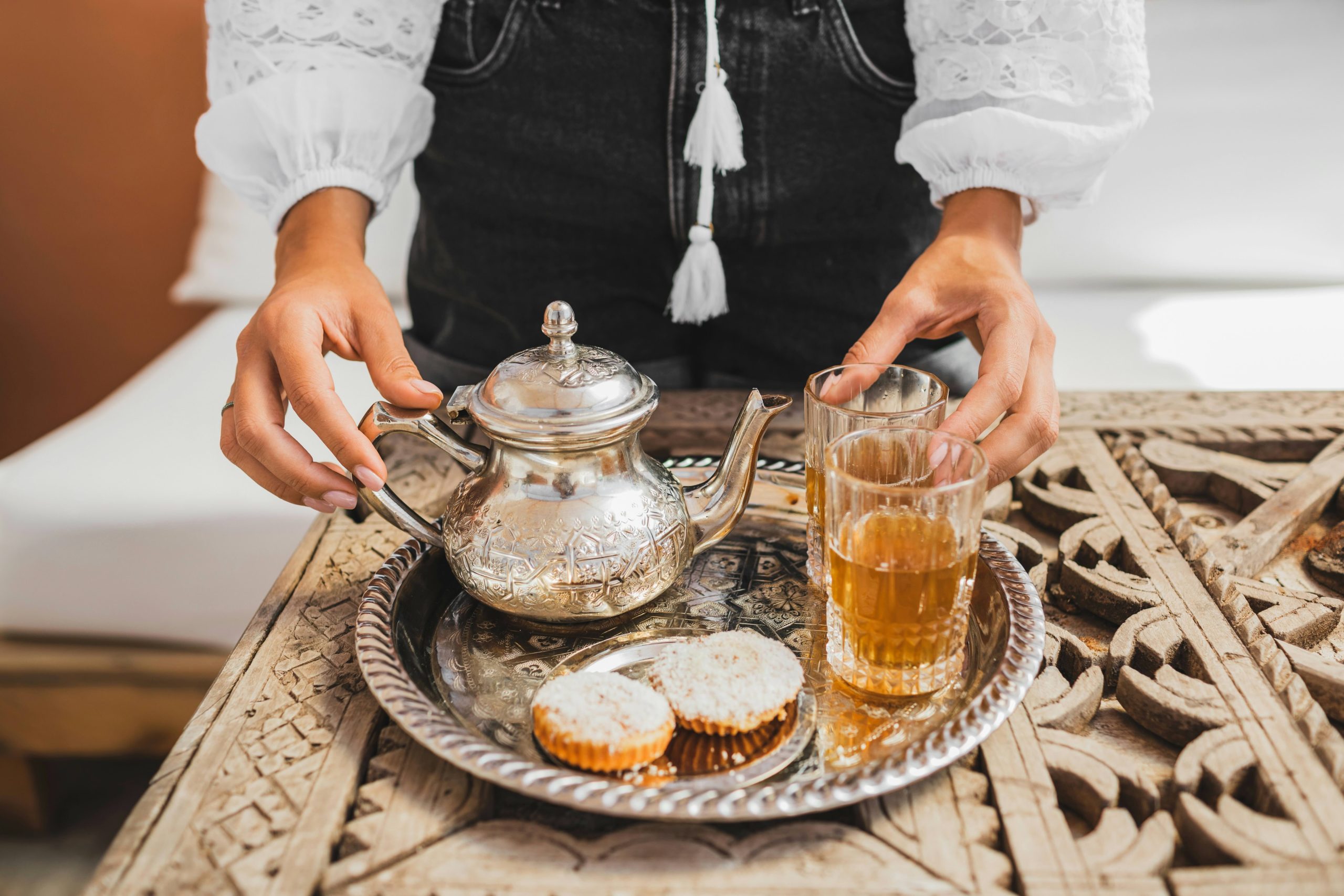Photo Getty Image
By Traciana Graves, Founder & Editor of Happiness 360®
What Turkish Social Architecture Teaches About Stress
As a language scholar studying how cultures embed wisdom into daily life, I’ve learned that what looks like hospitality is often something far more sophisticated. In Turkey, çay (tea) culture represents this at its most advanced: not a refreshment, but an architecture of resilience.
“Çaysız sohbet, aysız gökyüzü gibidir.”
“Conversation without tea is like a sky without the moon.” — Turkish proverb
This saying captures the essence: tea in Turkey is not optional. It is a luminous connector, as essential to daily life as the moon to the night sky. Walk through any Turkish city and you’ll see it: every few hours, life pauses for tulip-shaped glasses of tea, for conversations that reset not just minds but nervous systems.
The Science of Collective Pause
Neuroscience now confirms what Turkey has practiced for generations: stress dissolves more effectively in groups than alone. Research from UCLA shows that synchronized rituals and shared attention trigger co-regulation — the nervous system syncing into calmer states when supported by others.
Turkish tea breaks deliver this reset six to eight times daily. Pauses occur every two to three hours, from morning through evening. Each one lowers cortisol, while oxytocin and dopamine rise through conversation, laughter, and shared attention. What looks like leisure is, in fact, preventive medicine: stress is released before it accumulates.
The preparation matters neurologically. Using the double-boiler çaydanlık, carefully timing the steeping, pouring into tulip-shaped glasses — these steps engage what psychologists call collective mindfulness. Everyone focuses on the same simple process, shifting attention away from individual stress loops into shared presence.
Etiquette matters too. Accepting tea when it’s offered, lingering long enough for conversation, maintaining eye contact — these are not just niceties but social safety signals. They reassure your nervous system that you are supported, not alone, in carrying the day’s demands.
“Individual stress accumulates dangerously without regular social regulation — Turkey solved this centuries ago.”Traciana Graves
Research on workplace performance confirms what Turkey intuited long ago: isolated task completion depletes cognitive resources exponentially faster than socially interrupted work. By weaving tea breaks into the day, Turkey makes resilience systemic rather than optional.
Adapting Turkish Social Wisdom to Modern Life
The traditional rhythm: Çay is offered six to eight times daily, always in company, always prepared with intention. Participation is not optional — everyone present is expected to join.
The principles beneath it:
- Stress is addressed before it accumulates, through regular pauses.
- Ritualized focus on a simple shared act.
- Mandatory participation that transforms resilience into a habit.
Modern adaptations that preserve the essence:
- Schedule collective breaks — morning, mid-afternoon, early evening — when energy naturally dips.
- Use beverage preparation (tea, coffee, even water) as a shared ritual that draws attention into the present moment.
- Establish cultural expectation in your household or workplace that these pauses are productive time, not wasted time.
What makes this effective is the combination: social obligation (you can’t easily opt out), sensory pleasure (taste, warmth, color), conversational presence (which requires attention), and temporal boundaries (short, predictable intervals). Together, these create what psychologists call a restorative social experience — brief but complete nervous system renewal.
How Turkish Tea Differs from Moroccan Tea
Both Turkey and Morocco use tea to interrupt the pace of daily life, but their cultural designs are distinct.
- In Morocco, mint tea functions as hospitality architecture. Amid the chaos of medinas, tea is an invitation. A host slows you down, offering generosity and grace. Renewal is created through welcome.
- In Turkey, çay functions as social infrastructure. Across cities, villages, and workplaces, tea is not just offered — it is expected. Society itself enforces the rhythm. Renewal comes through regularity and obligation.
One tradition is generosity extended; the other is resilience mandated. Both reveal different cultural ways of embedding pause into daily life — by invitation in Morocco, by inevitability in Turkey.
Why This Matters Now
Modern wellness culture often frames stress management as an individual pursuit — meditation apps, personal rituals, sheer willpower. Turkey shows another model: resilience as a collective responsibility. Stress relief is not left to individuals but designed into the rhythm of society.
This is the very principle behind Fearless Listening®: studying cultural practices that solved universal human challenges long before neuroscience confirmed their wisdom. Turkish tea culture reminds us that resilience doesn’t always come from optimization or isolation. Sometimes it comes from the simple grace of stopping together, regularly and without question.
The tea, it turns out, was never only about the beverage. It was — and remains — about building a culture where no one carries stress alone. Sometimes the most sophisticated wellness system is also the most social one.
Fearless Listening® is the foundation of the Happiness 360® ecosystem—created for self-actualization, aligned leadership, creative living, and conscious connection.






















0 Comments for “How Turkey’s Tea Culture Creates Social Resilience Better Than Any Wellness Program”